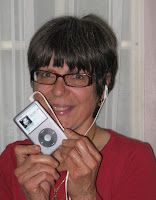
Washington: Medical insurance companies attract anger like Velcro captures lint. Who, of those clutching tightly to their own health insurance, hasn’t waited while doctors file with some desk jockey for permission to do a medical test? Who hasn’t heard about someone fighting to get out of the tight spot between doctors needing payment and insurance companies stalling? It’s time to clean up some of the health care mess so on June 25th approximately 25,000 American citizens traveled from nearly every state to form an army of citizen lobbyists demanding lives over dollars as the US looks toward health care reform.
Senator Chuck Schumer was opening speaker, seemingly cheerleader, with wildly enthusiastic and mercifully brief comments to the crowd steaming in the sun at Senator’s Park in front of the capitol building. Schumer declared that it’s time to change business as usual in health care. What does Schumer want? A strong public option for health coverage for everyone. Schumer shouted, “The greatest country in the world should have the greatest health care in the world.”
As the New York State Senate is mired in conflict that has business in Albany flailing, it seemed that that people’s voices may actually be heard in Washington. Senators Schumer and Kristen Gillibrand as well as Representative Eric Massa are on board with proposals to bring an aggressive public option to health care in the US.
The most recent polls show that at least 72% of Americans want to have a public option for health care. What’s a public option? Some call it Medicare for all in trying to explain the goal but others call it socialized medicine when trying to protect the status quo.
Why isn’t it socialism? Because the government won’t employ the doctors or own the hospitals but rather hospitals and doctors will be independent as they are now. Because people will have their choice of doctors, clinics and hospitals. Since nothing of the system would be run by the government, there’s nothing of socialism in the plan.

Speakers at the rally from workers to pastors to small business owners said that they hate that insurance companies decide on treatment options. They hate that insurance companies decide who they will insure and set the rates without oversight operating in a near-monopoly situation.
What the House and Senate are looking at are bills that would allow people to opt into a public program similar to Medicad. People could choose to participate the same way that people can choose public or private schools or the public post office or private mail carriers such as UPS or FedEx. In the same way that public and private can co-exist in those business models, public and private health insurance can also fit into the market place.
Possibly shining stars in the language are passages that take the dreaded “pre-existing condition” problem out of the conversation. With the public and private models in competition and with companies no longer being allowed to consider pre-existing health problems in their billing structure citizens should benefit. Another change is that coverage would have to include preventive care.
Senator Sherrod Brown of Ohio said that America needs a health care system with a strong public option but that the health insurance industry is claiming that the government can’t do anything right. “If so,” said Brown, “why are they afraid of a public option?”
Brown and Schumer along with Rockefeller, Leahy and dozens of other senators all declare that having an option for public health care would increase competition, lower prices, improve quality and benefit consumers. Massa stepped through the numbers to show how the program could be paid for by shifting money that’s already out there in the health industry – using it to pay doctors and not insurance corporation big wigs.
The public health option is good for the economy – perhaps closer to necessary. Many senators and representatives stated that the economic recovery is hindered by the health care crisis.
Under the current patchwork program nearly 20,000 Americans die every year because they have no health insurance. Worried about expenses, they ignore problems or fail to treat chronic disease and die early. According to the Institute of Medicine, the US is the only wealthy, industrialized nation that does not provide health care for all citizens.






